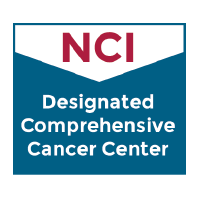
Vulvar Cancer
Vulvar cancer forms in the vulva, the area around the external genital organs on a woman. The vulva includes the following parts:
- Labia The lips around the opening of the vagina
- Clitoris A small mass of tissue at the opening of the vagina
- Bartholin's Glands The small mucus-producing glands on either side of the vaginal opening
In most cases, cancer of the vulva affects the labia. Less often, cancer occurs on the clitoris or in Bartholin's glands. Over 90 percent of vulvar cancers are considered a type of skin cancer because they begin in the squamous cells, the main cell type of the skin. They usually develop slowly over many years and in their earliest form are not cancerous.
When diagnosed and treated early, vulvar cancer can be cured in more than 90 percent of cases.
Risk Factors
Vulvar cancer is relatively rare, and typically affects Caucasian women over the age of 60, although the condition can occur in younger women and those of all ethnicities. Other risk factors for the condition include:
- Smoking
- Taking steroids or other drugs that weaken the immune system
- Genital warts caused by the sexually transmitted human papillomavirus (HPV)
Our Approach to Vulvar Cancer
UCSF offers innovative, compassionate care in a supportive environment to patients with vulvar cancer. Our team includes gynecologic oncologists, gynecologic cancer surgeons, radiation oncologists and nurses with special training in reproductive cancers. We also work with plastic surgeons for patients who need reconstructive surgery once the cancerous tissue is removed.
We believe that education is a powerful part of the healing process. Our team works with each patient to help her understand her condition and all her treatment options, so we can decide together on the best course of action.
Awards & recognition
-

Among the top hospitals in the nation
-

Best in Northern California for cancer care (tie)
-

Designated comprehensive cancer center
UCSF Health medical specialists have reviewed this information. It is for educational purposes only and is not intended to replace the advice of your doctor or other health care provider. We encourage you to discuss any questions or concerns you may have with your provider.





